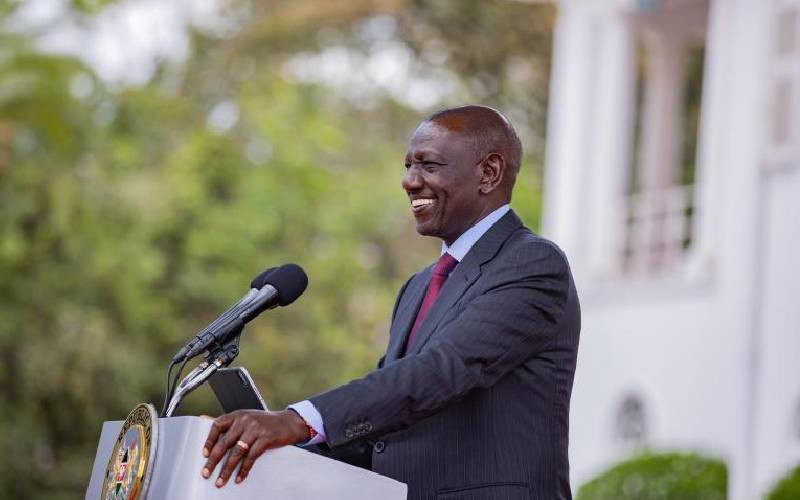Why Ruto’s Health Agenda Hangs On Balance?
The realisation of President William Ruto’s health agenda hangs in the balance after courts amid court cases of challenge its implementation.
This occurs along with President Ruto restating the administration’s commitment to implementing Universal Health Coverage (UHC).
The Primary Health Care Act, Facility Improvement Financing Act, Digital Health Act, and Social Health Insurance Act are the laws that would enable Universal Health Coverage, according to Health Cabinet Secretary Susan Nakhumicha.
At the State House on October 19, 2023, President Ruto gave his assent to the measures.
“We don’t have a comprehensive briefing on UHC deployment. It is a lengthy process and may not occur as a result of the legal cases, according to a senior Ministry of Health official.
During a Q&A session with The Standard, Nakhumicha stated that the laws will serve as the cornerstone of UHC, providing all Kenyans with access to high-quality healthcare.
The CS stated, “We are committed to transforming healthcare, and four important laws are expected to anchor the implementation of Universal Health Coverage.”
There is no upper limit on the maximum compensation; nevertheless, the minimum payment to the kitty is Sh300.
Health professionals and others have criticized the Acts’ establishment procedure amid the impasse, saying it was not exclusive.
Prof. XN Iraki, an economist at the University of Nairobi, stated that in order to guarantee the acts’ procedural execution, the government should start over from scratch.
Several organizations, including the Kenya Medical Practitioners and Dentist Union (KMPDU), filed a lawsuit to prevent the SHIA’s adoption.
The doctors’ union expressed worry over the Bills’ omission of their memos and submissions.
They also questioned the constitutionality of the government’s decision to deny Kenyans access to treatments if they fail to make monthly contributions to the medical plan.
In addition, physicians recommended that civil personnel have full medical coverage, which the Acts did not include. Civil personnel typically pay Sh1,700 for comprehensive coverage under the NHIF.
According to KMPDU Secretary General Davji Atellah, “public participation was just public manipulation and an academic exercise because all the details we shared were never considered.”
Because the laws were passed quickly and Kenyans were not given enough time to review them, Dr. Atellah warned that SHIA would covertly privatize the healthcare system.
“If everyone would receive care guaranteed by SHA, then why are we being told to obtain private insurance? Kenyans will have greater out-of-pocket costs. We are in court for this reason,” he stated.
The ministry has given Community Health Promoters a lot of responsibility for preventive health in addition to the Acts.
The CS stated: “The president recognized 100,000 community health advocates as front-line contributors to the provision of preventative and promotional healthcare. These advocates had received training, equipment, and deployment within the community. UHC is run by Community Health Promoters (CHPs), who are its lifeblood.

Why Ruto’s Health Agenda Hangs On Balance?
